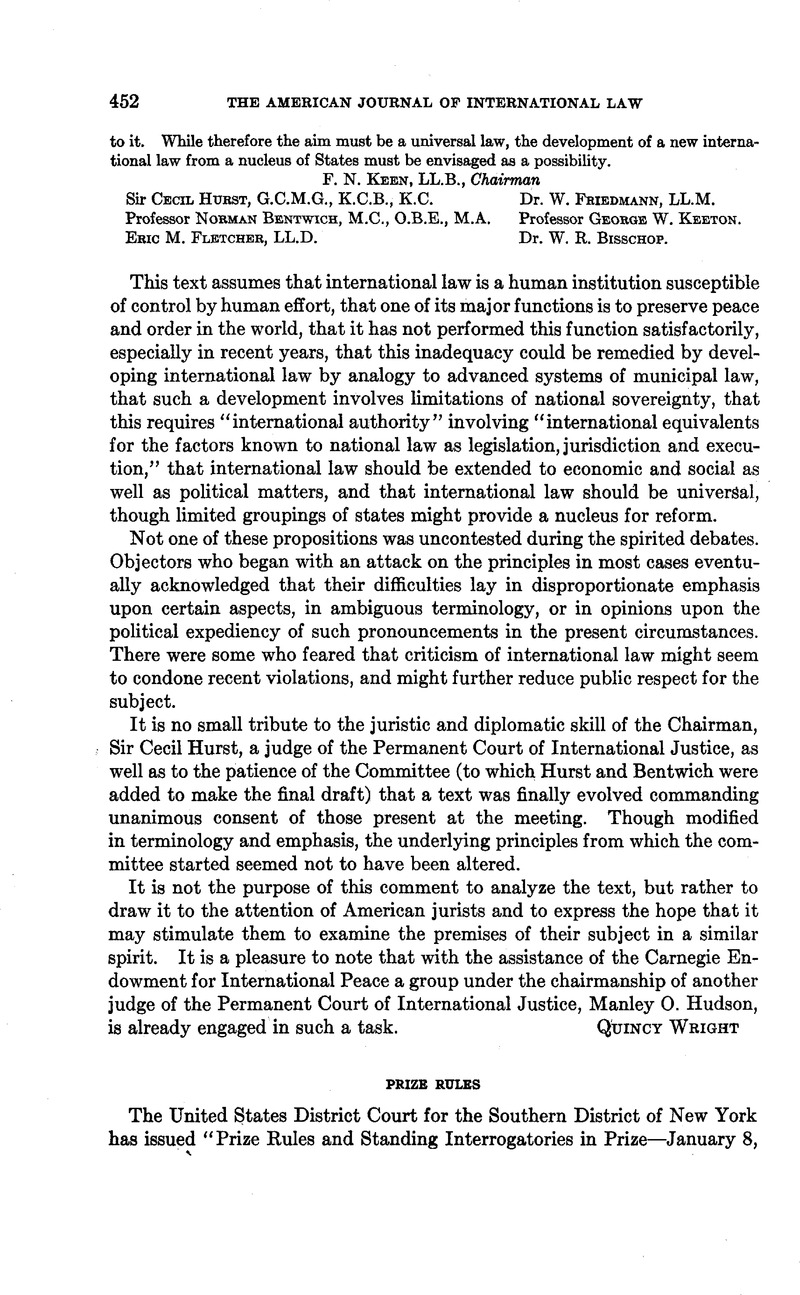Article contents
Abstract

- Type
- Editorial Comment
- Information
- Copyright
- Copyright © American Society of International Law 1942
References
1 42 F. Supp. XXVII; The Maritime Law Association of the United States, Document No. 271, January, 1942.
2 Statutory Rules and Orders 1939, No. 1466, L. 23.
3 “A Summary of Practice in Instance Revenue and Prize Causes . . . together with the Rules of the District Court,” p. 53 and cf. p. xii.
4 Loc. cit.
5 Even in Moore’s Digest (1906), Vol. VII, p. 608.
6 Reprinted in Pratt and in Moore’s Digest, op. eit., and with attendant detail in Moore, International Adjudications, Modern Series, Vol. 4, p. 43.
7 Neutrality, Its History, Economics and Law, Vol. I, Jessup and Deák, “The Origins”, p. 220, n. 68.
8 The Law of Nations Affecting Commerce During War, 3rd ed., p. 453. The names of the three commissioners appointed for the Eastern District were announced in the New York Times, March 13, 1942.
9 Cf. Garner, Prize Law During the World War, p. xliii.
10 Cf. Kunz, “British Prize Cases, 1939–1941,” this Journal, Vol. 36 (1942), p. 204.
11 See United States Department of Commerce, Comparative Law Series, Vol. III, No. 1, January, 1940, p. 50.
12 Ibid., Vol. III , No. 6, June 1940, p. 325.
- 1
- Cited by


